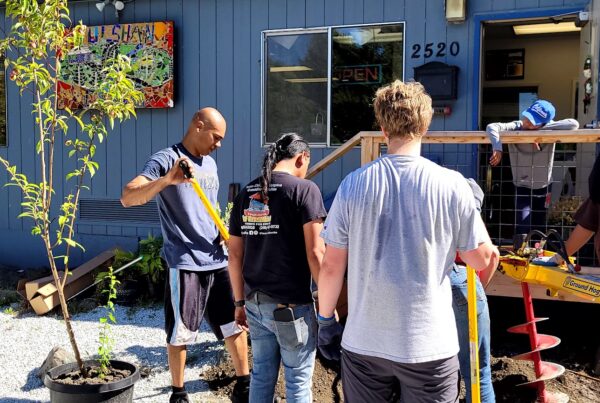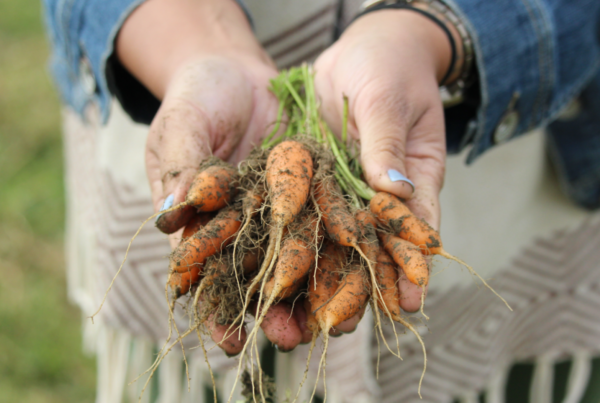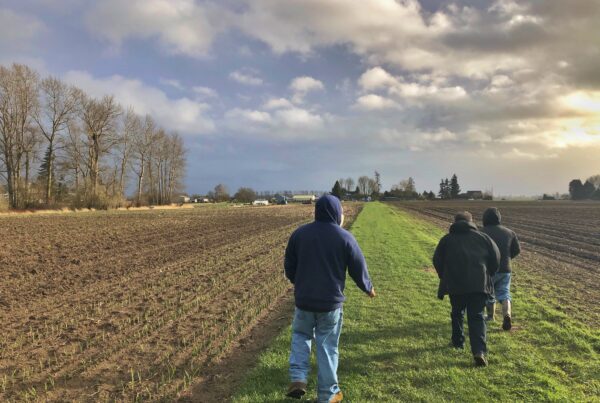Nutritious food plays a vital role in our overall health. Yet too many low-income communities lack equitable access to nutritious, affordable, fresh foods. Limited access makes it difficult to eat the specified diet necessary for managing or preventing conditions such as diabetes, high blood pressure, and/or obesity. That’s why Food Lifeline is launching a pilot project with Sea Mar Community Health Centers to provide nutrient-dense, diabetes-appropriate food. The success of the project means bringing this program to health clinics across Western Washington.
Getting Out of the Car: How a Partnership between Food Lifeline and Sea Mar Community Health Centers is helping Jasson
Eleven years ago, Jasson moved to South Seattle from Lewis County, south of Tacoma to work for a new company. Unfortunately, shortly after the move, Jasson’s career was cut short.
Up until that point, Jasson had a career in the Electroplating industry. Electroplating involves dipping racks of objects in a solution and running an electrical current through the solution to create a thin layer of metal on the outside. Items ranging from kitchen faucets to the chrome plated parts on cars are routinely electroplated.
Working in the electroplating industry requires physical strength and a good deal of chemical knowledge. Jasson was about 280 pounds, a bit more than he would have liked, but very strong. One day, nearly ten years ago now, Jasson was working with a rack that developed a mechanical problem. The rack fell off its track and when he tried to save it, he twisted his back. It took several years and spinal surgery to get Jasson back on his feet.
In the meantime, he had little to no income. He ate a lot of oatmeal and rice and, being unable to exercise, he gained an additional 130 pounds. He also lacked community and family support. His wife had left him long before, when their daughter died in a car accident, and his father died a few years later.
After his recovery from surgery, Jasson couldn’t make his rent and his medical bills, so he lost his apartment and started living in his car. He was in starvation mode. What little he ate was mostly empty carbs and his body hung on to everything it could. At one point, he didn’t get out of his car for three days because it was so rainy. During that period, he didn’t eat anything and he drank very little water. Finally, on the third day, he ended up calling an ambulance because he blacked out repeatedly.
When he got to the hospital, his blood pressure (formerly normal) was sky high, and the doctors told him he also had diabetes. He wasn’t too surprised about the diabetes, since his mother had it too, but he had hoped he would be lucky enough to avoid it. The hospital referred him to Sea Mar Medical Clinic, where he started to see a health educator in addition to taking six prescribed medications to get his health under control.
The health education started to make a difference right away. Jasson worked to get fruits and vegetables into his meals, and the first fifty pounds of his weight loss “just dropped off.”
Now with access to vegetables from Food Lifeline in addition to a food bank, Jasson is excited for the possibilities he sees before him. He wants to keep eating healthy so he will have strength to handle the challenges that still lie ahead: He’s working to get into a housing program (vinegar wash just isn’t the same as a kitchen sink), walk more and longer distances, and he hopes these things will allow him to be able to gain a place in his niece’s life. He’s grateful for the opportunity to have the extra fruits and vegetables from Food Lifeline to help him make a difference with his diabetes.
Sign up to receive updates on our pilot program and invitations to special events below!







